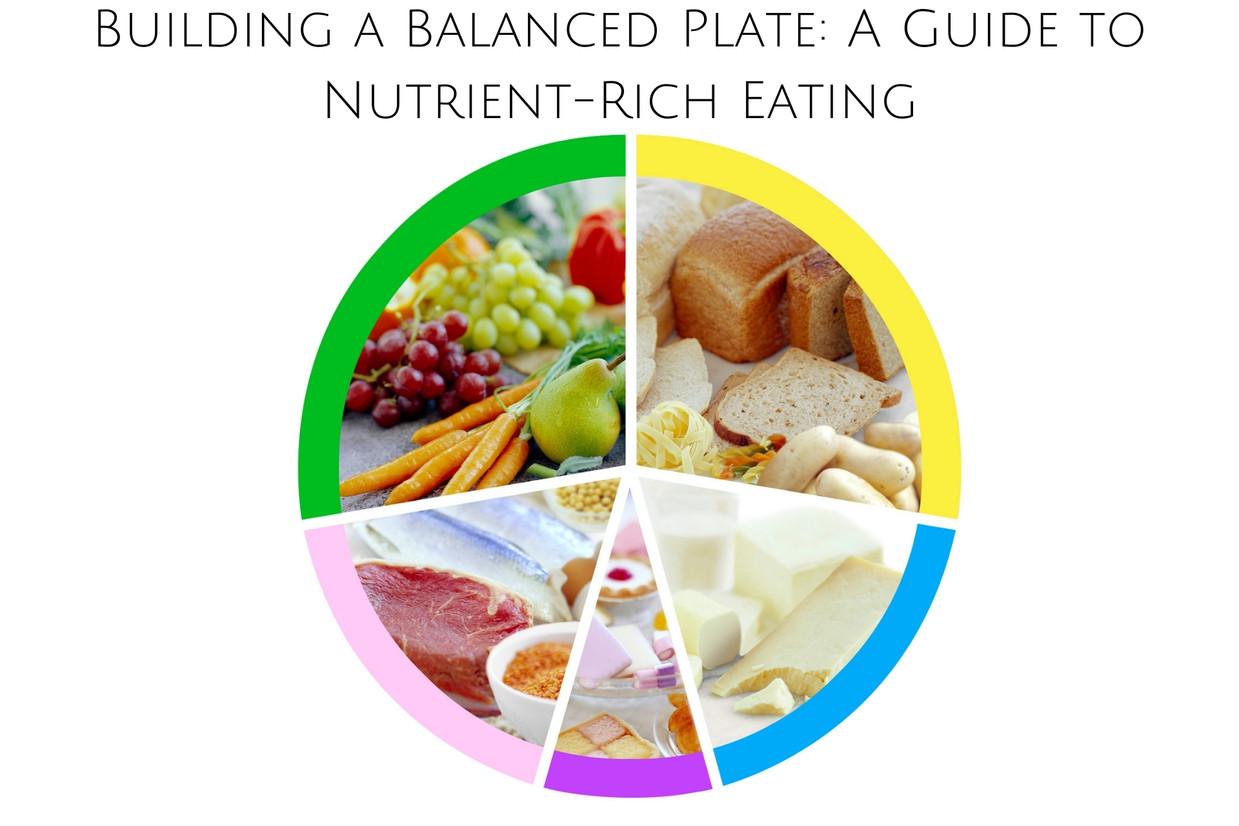Building a Balanced Plate: A Guide to Nutrient-Rich Eating
Introduction:
In the hustle and bustle of our daily lives, it's easy to overlook the importance of maintaining a balanced diet. Despite that, the food we consume plays a crucial role in our overall health and well-being. One way to ensure you're getting the right nutrients is by building a balanced plate. In this blog post, we'll explore the key elements of a balanced plate and provide practical tips to help you make healthier food choices.
The Foundation of a Balanced Plate:
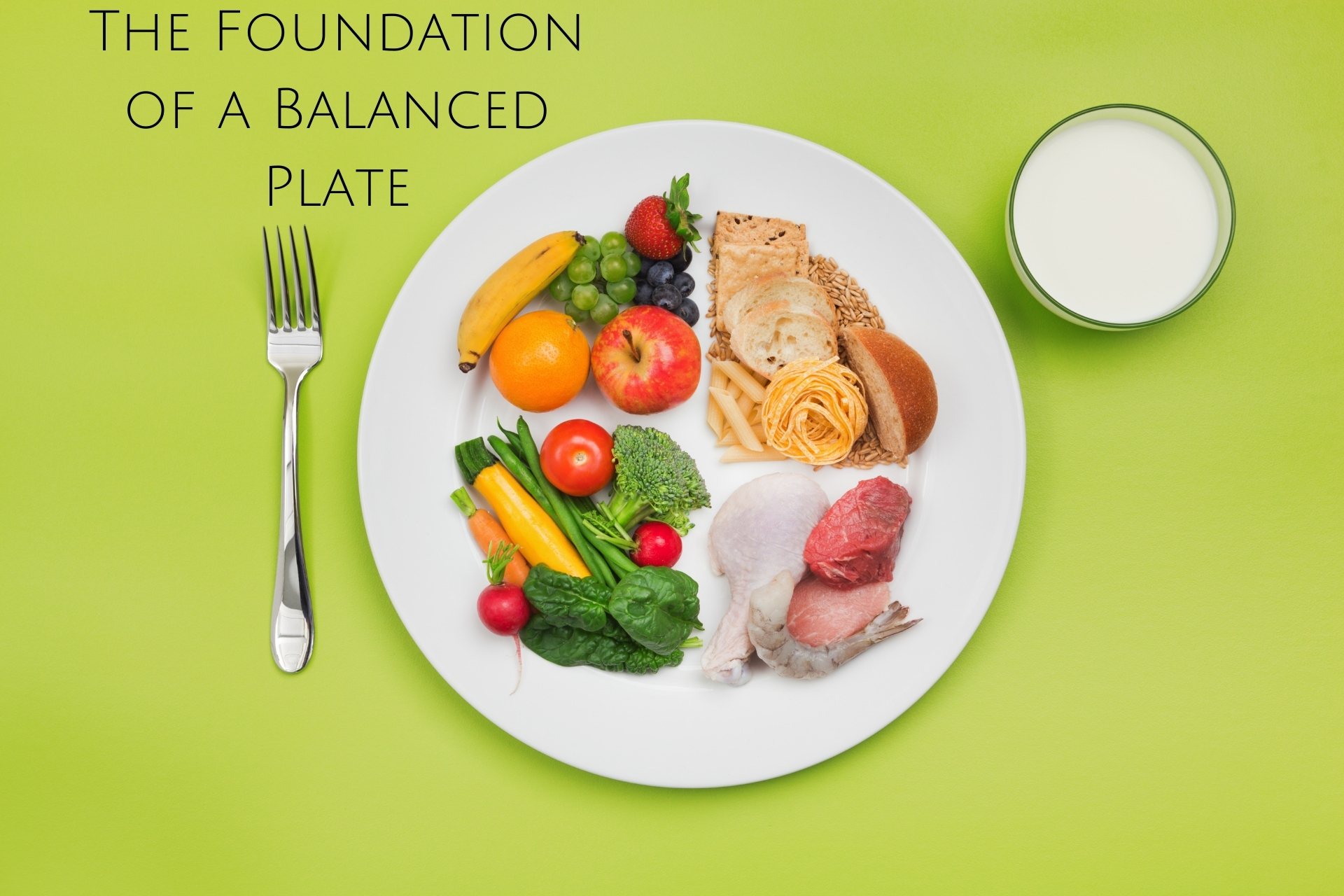
A balanced plate consists of a mix of essential nutrients, including carbohydrates, proteins, fats, vitamins, and minerals. This combination ensures that your body receives the fuel it needs to function optimally. Here's a breakdown of each component:
Carbohydrates:
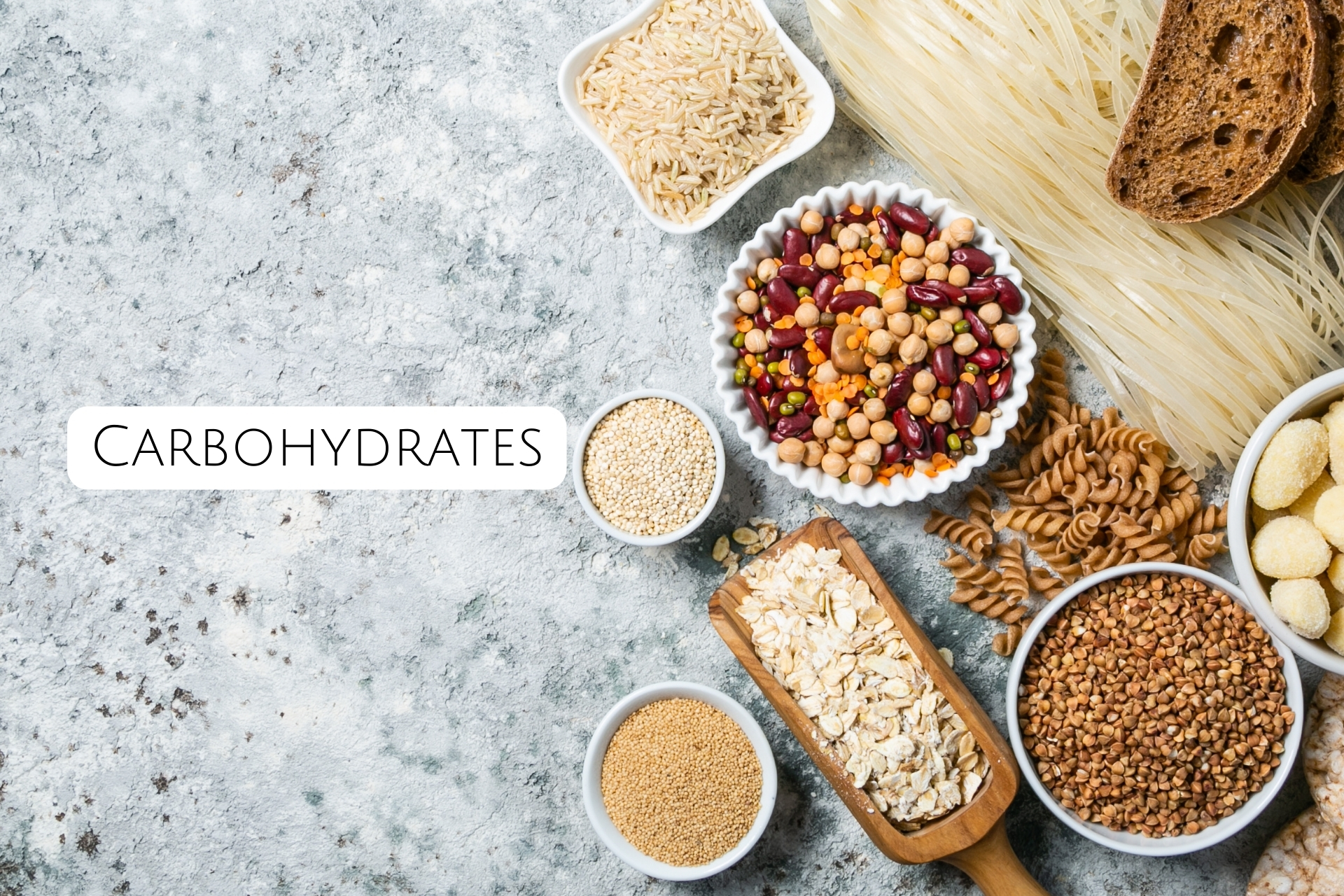
Carbohydrates are one of the three macronutrients essential for the proper functioning of the human body, alongside proteins and fats. They are the body's primary source of energy, providing fuel for various physiological processes and activities. Understanding the different types of carbohydrates and incorporating them wisely into your diet is crucial for maintaining a balanced and healthy lifestyle.
Types of Carbohydrates:
Simple Carbohydrates:
Sources: Found in fruits, vegetables, and dairy products.
Characteristics: Quickly digested, leading to a rapid increase in blood sugar.
Examples: Fructose (found in fruits) and lactose (found in dairy).
Complex Carbohydrates:
Sources: Found in whole grains, legumes, and starchy vegetables.
Characteristics: Take longer to break down, providing a steady release of energy.
Examples: Brown rice, quinoa, oats, and sweet potatoes.
Proteins:
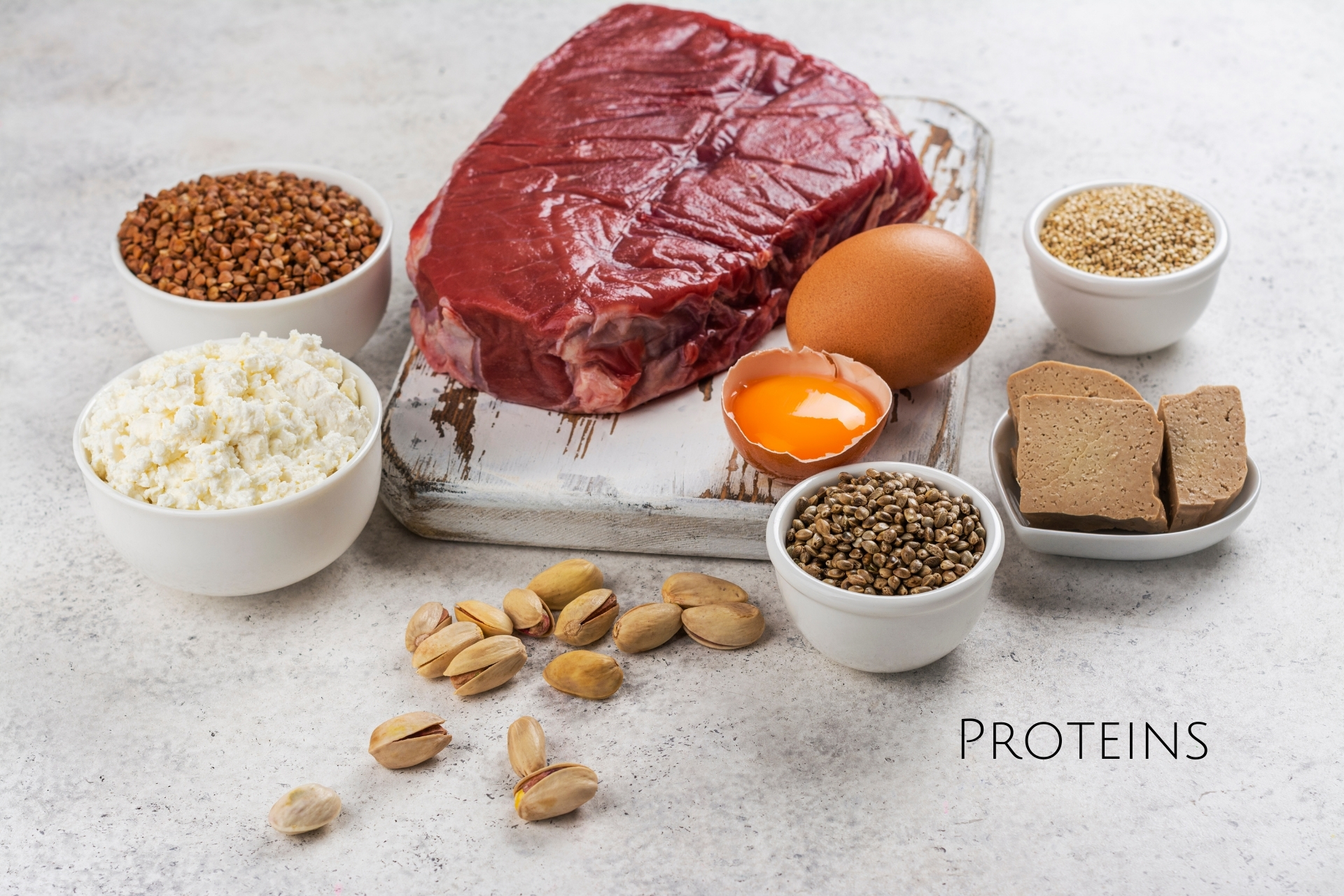
Proteins are fundamental macronutrients that play a crucial role in the structure and function of the human body. Composed of amino acids, proteins are involved in various physiological processes, and they are essential for the growth, repair, and maintenance of tissues. Understanding the importance of proteins and incorporating them into a balanced diet is key to promoting overall health and well-being.
Sources of Protein:
Animal Sources:
Lean Meats: Chicken, turkey, lean beef, and pork.
Fish and Seafood: Salmon, tuna, trout, and shrimp.
Dairy Products: Milk, yogurt, cheese, and eggs.
Plant-Based Sources:
Legumes: Beans, lentils, and chickpeas.
Edible Kernels: Almonds, peanuts, chia seeds, and flaxseeds.
Tofu and Tempeh: Excellent sources of protein for those following a vegetarian or vegan diet.
Whole Grains:
Quinoa, barley, and whole wheat provide a protein boost along with other essential nutrients.
Fats:
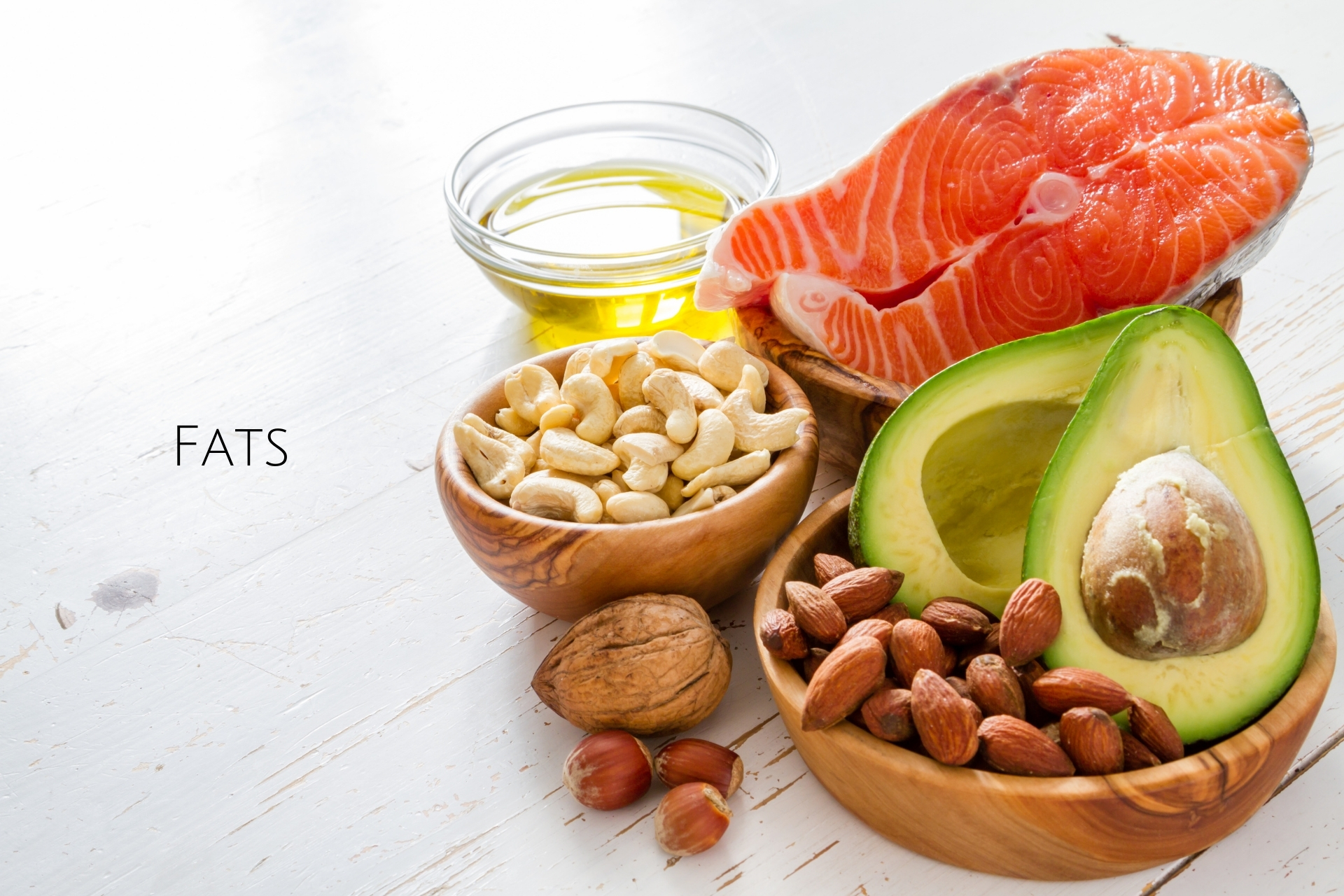
Fats are a crucial component of a well-balanced diet, serving various essential functions in the body. While they are often associated with weight gain, it's important to recognize that not all fats are created equal. Understanding the different types of fats and making informed choices can contribute to overall health and well-being.
Types of Fats:
Saturated Fats:
Found in animal products such as meat, dairy, and some plant oils.
Monounsaturated Fats:
Found in olive oil, avocados, and certain nuts.
Monounsaturated fats are considered heart-healthy and may help lower LDL cholesterol levels.
Polyunsaturated Fats:
Found in fatty fish (such as salmon and trout), walnuts, flaxseeds, and some plant oils.
Include essential omega-3 and omega-6 fatty acids, which are important for brain function and heart health.
Trans Fats:
Often found partially processed with hydrogen oils in processed and packaged foods.
It's advisable to limit or avoid trans fats.
Vitamins and Minerals:
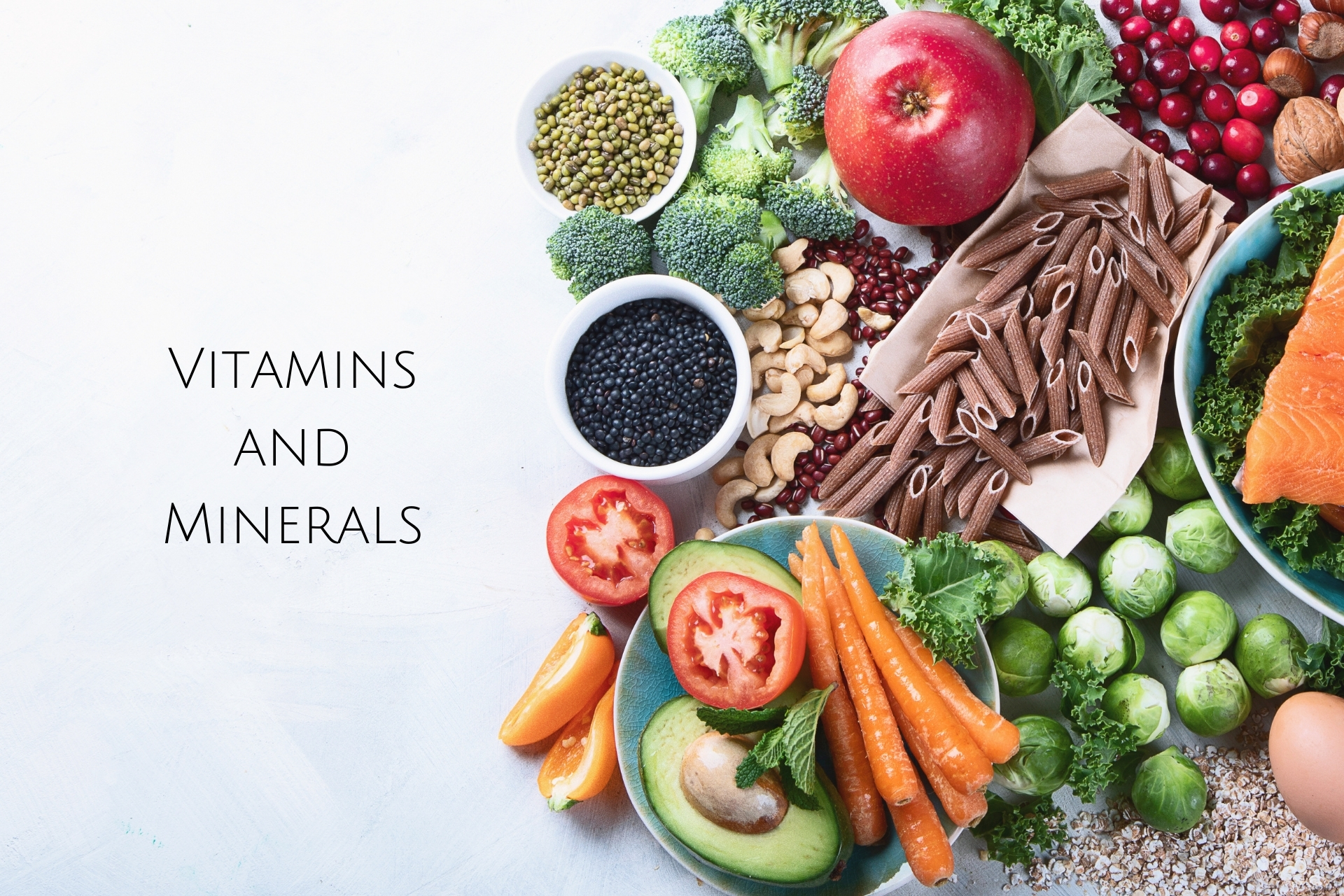
Vitamins and minerals are micronutrients that play vital roles in various physiological functions within the body. While they are required in smaller quantities compared to macronutrients like carbohydrates, proteins, and fats, their importance cannot be understated. Ensuring an adequate intake of vitamins and minerals is crucial for maintaining overall health and preventing deficiencies.
Vitamins:
Vitamin A:
Essential for vision, immune function, and skin health.
Found in sweet potatoes, carrots, spinach, kale, and liver.
Vitamin B Complex:
Vitamin B complex refers to a group of water-soluble vitamins that play essential roles in various bodily functions. This group includes several individual B vitamins, each with its unique properties and benefits
Vitamin C:
It is well-known for its antioxidant properties and its importance in supporting the immune system, collagen synthesis, and overall health.
Vitamin D:
Important for bone health as it aids in calcium absorption.
Sunlight exposure, fatty fish, fortified dairy products, and egg yolks are sources.
Vitamin E:
Acts as an antioxidant, protecting cells from damage.
Found in nuts, seeds, vegetable oils, and leafy greens.
Vitamin K:
Essential for blood clotting and bone health.
Minerals:
Calcium:
Calcium is a crucial mineral that plays a fundamental role in various physiological processes within the body. While it is widely known for its role in maintaining strong bones and teeth, calcium is also essential for muscle function, nerve transmission, blood clotting, and cellular signaling.
Iron:
Iron is an essential mineral that plays a crucial role in various physiological processes in the human body. It is integral for the formation of hemoglobin, the protein responsible for transporting oxygen from the lungs to the rest of the body.
Magnesium:
Magnesium is an essential mineral that plays a crucial role in various physiological functions within the human body. It is involved in more than 300 biochemical reactions, contributing to processes like muscle and nerve function, blood glucose control, and bone health.
Potassium:
Potassium is an essential mineral and electrolyte that plays a vital role in maintaining various physiological functions within the human body. It is crucial for proper fluid balance, nerve transmission, muscle contractions, and heart function.
Zinc:
Supports immune function, wound healing, and DNA synthesis.
Found in meat, dairy, nuts, and legumes.
Selenium:
Acts as an antioxidant and supports thyroid function.
The Rules of the Balanced Plate:

Imagine your plate divided into three sections:
Half the Plate: Fill this section with a colorful variety of non-starchy vegetables. Think leafy greens, broccoli, carrots, bell peppers, tomatoes, and more. They're loaded with vitamins, minerals, and fiber, keeping you feeling fuller for longer.
One Quarter: Dedicate this area to healthy carbohydrates. Opt for whole grains like brown rice, quinoa, whole-wheat bread, or sweet potatoes. They provide sustained energy while keeping blood sugar levels stable.
One Quarter: This is your protein zone! Choose lean proteins like grilled chicken, fish, tofu, beans, lentils, or nuts. They're essential for building and repairing tissues, and promote satiety.
Practical Tips for Building a Balanced Plate:
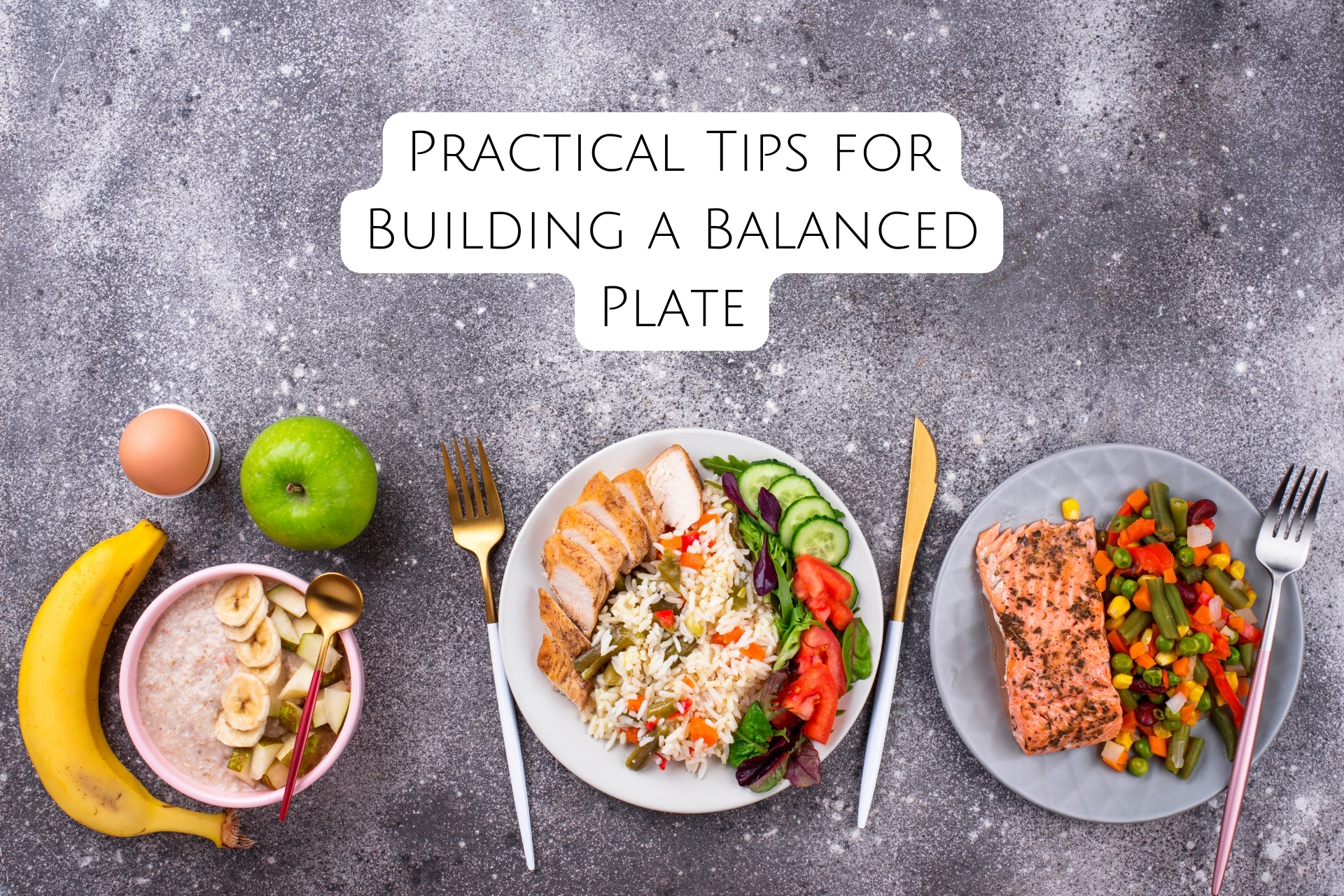
Portion Control:
Be mindful of portion sizes to avoid overeating.
Use smaller plates to help with portion control.
Colorful Choices:
Aim to include a variety of colors on your plate to ensure a diverse range of nutrients.
Hydration:
Stay well-hydrated by drinking water throughout the day.
Limit sugary beverages and excessive caffeine intake.
Meal Planning:
Plan your meals ahead of time to ensure a balanced combination of nutrients.
Prepare healthy snacks to avoid reaching for processed options when hungry.
Listen to Your Body:
Pay attention to hunger and fullness cues.
Avoid distractions like screens while eating to foster mindful eating.
Conclusion:
Building a balanced plate is a simple yet effective way to promote overall health and well-being. By incorporating a variety of nutrient-rich foods, practicing portion control, and staying mindful of your body's needs, you can make positive strides towards a healthier lifestyle. Remember, small changes in your eating habits can lead to significant improvements in your overall health. Start building your balanced plate today and nourish your body for a vibrant and energized life.
Recent Posts
-
Power Up Your Performance: Unleashing the Strength of Protein
Introduction:Whether you're an athlete pushing your physical limits or someone striving for an activ
-
Brush buddies:Finding the perfect tool for the job
Introduction:In the mesmerizing world of makeup, the unsung heroes are often the brushes that effort
-
Can You Wear Makeup Over Sunscreen?
Introduction:The age-old debate on whether you can wear makeup over sunscreen is one that often

